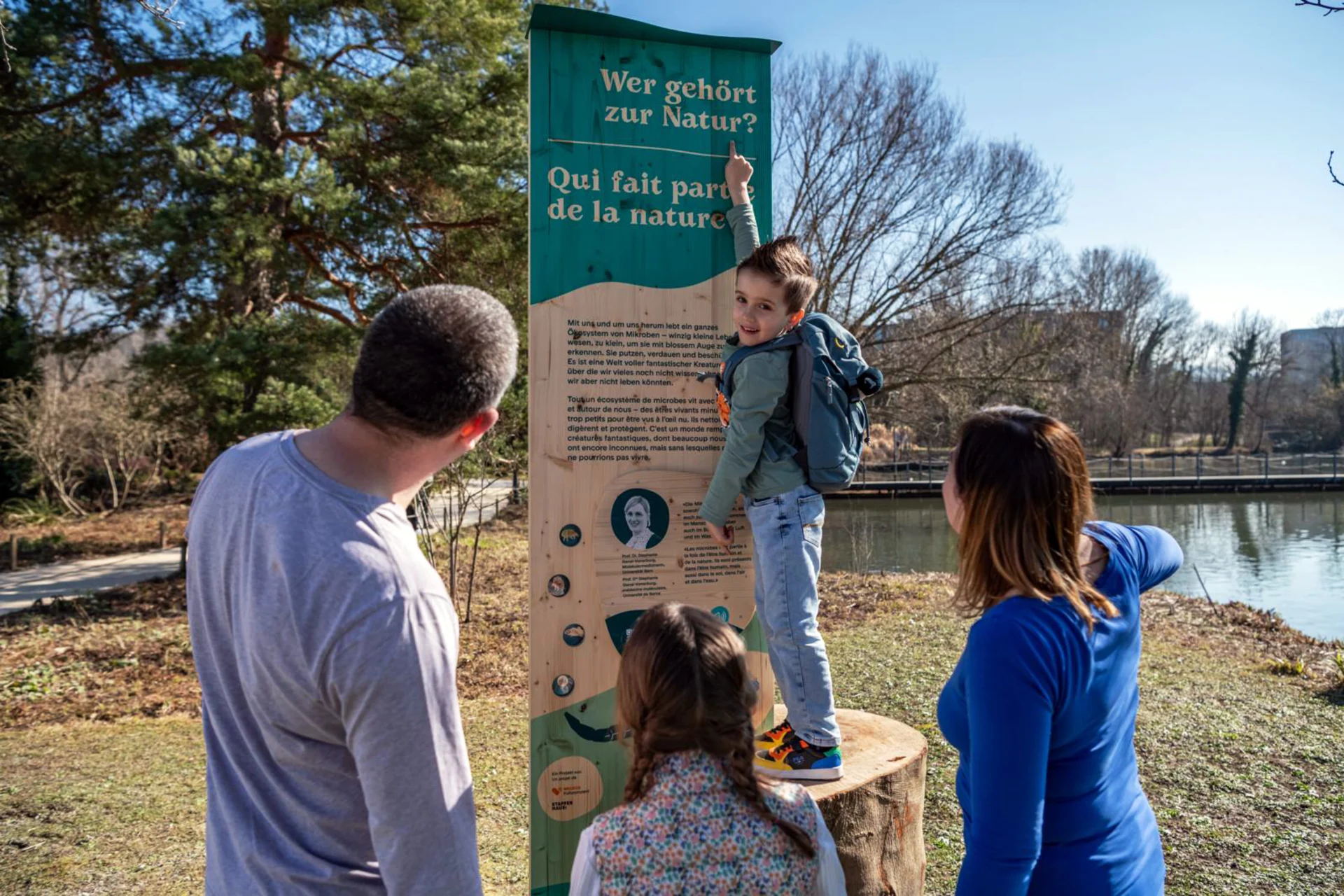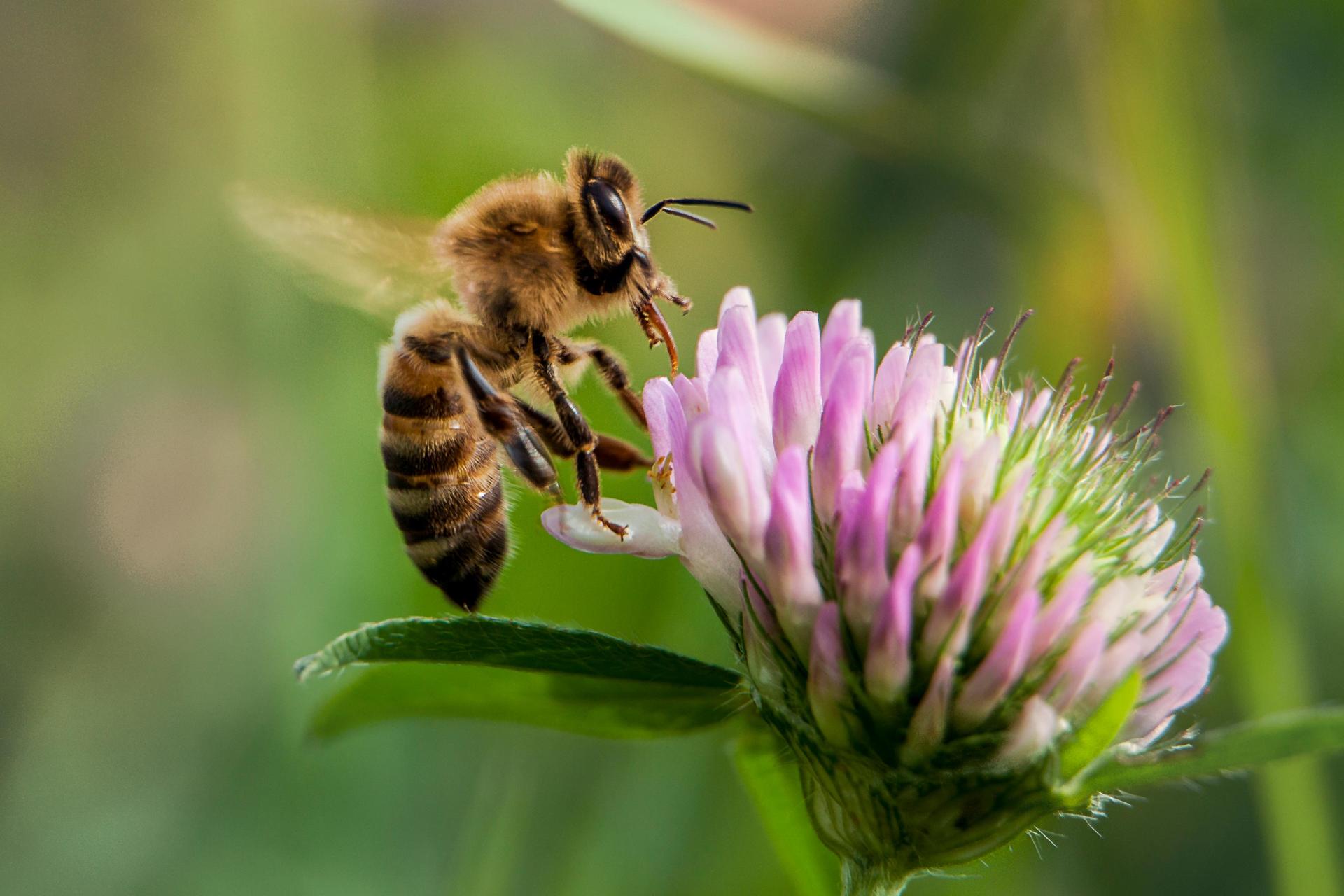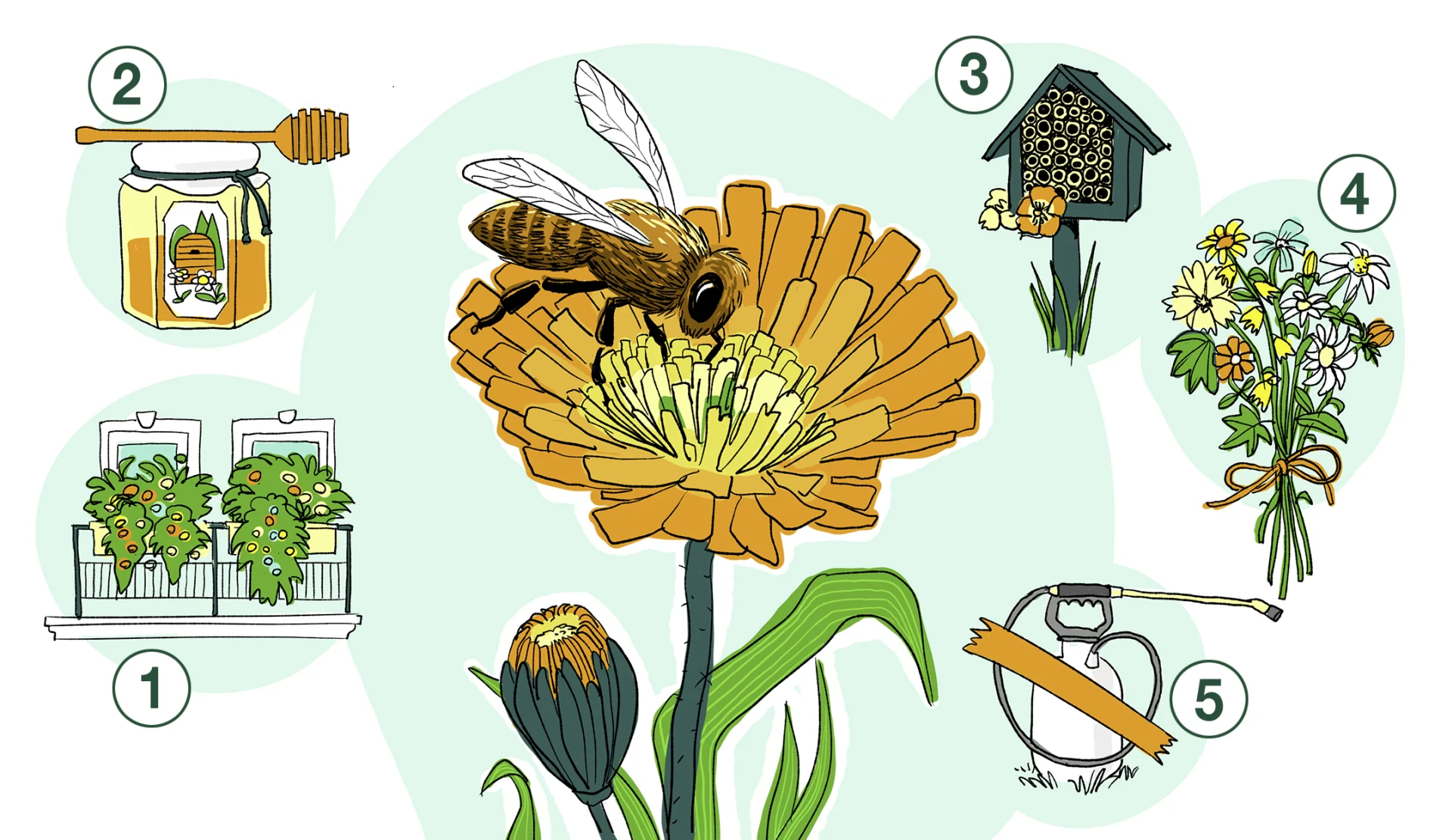
Culture Percentage
Off to the park
The trail "Nature. And you?" is making its way through the Migros parks and is just the right thing for families.
navigation

Aid for insects
Industrious bees are crucial to our survival. That's why we protect them – with your help.
Protecting bees can start on a small scale, whether in the garden, on a balcony or terrace or by landscaping your roof. Honey bees and wild bees are an important part of our ecosystem. Every square metre of greenery is key to promoting biodiversity. You needn't have a huge garden to grow insect-friendly plants and thus protect bees.
Everyone can help to protect bees. Here are the five simplest tips:

When you are gardening, pay attention to which plants insects like. This is especially easy with native perennials and tiles of pre-seeded plants which provide islets of flowers for our diligent helpers. If you have a sun-drenched balcony, opt for bluebells, ox-eye daisies or reseda. By contrast, deadnettles, lungwort and European bellflowers are recommended for completely or semi-shaded areas. Pussy willows, fruit and maple trees are particularly valuable shrubs and trees in a garden. The greater the variety, the better!
The next time you shop, go for honey products that are certified as being from your region. This protects bees.
Uncut plants are an important safe area on which insects can land. If you mow these meadows, leave at least ten percent of the area unmowed as a retreat for insects. The same applies in winter. This also creates nesting areas and places for wild bees to hibernate. Regardless of whether they are on a balcony or in the garden, leave withered bushes as they are and do not cut them down, as bees use them shelter in the winter.
More than 600 species of wild bees live in Switzerland, each with their own unique needs. However, they all need nesting places and plants that provide pollen and nectar. Gardening is not the only way you can help. You can make or purchase a nesting aid for your balcony or garden. Position the apiary so that it is south-facing and gets plenty of sunlight.
Avoid using pesticides and biocides that are labelled as being harmful to bees.
Discover exciting stories about all aspects of Migros, our commitment and the people behind it. We also provide practical advice for everyday life.